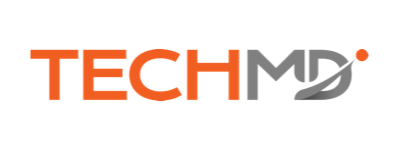
Unlock $20B+ In Research & Development Tax Credits
Federal tax credits help innovative companies reduce tax liabilities and receive cash refunds for research and development expenses.
Trusted By The World's Fastest Growing Companies
Join 500+ innovative companies maximizing their R&D investments





R&D Tax Incentives Explained
Federal tax credits designed to encourage innovation and reward companies for their research and development investments.
Federal Tax Incentive
Reduce your current year tax liability dollar-for-dollar with R&D tax credits.
Up to 20% of qualified expensesCash Refunds Available
Get reimbursed for paid taxes by filing retroactive credit claims
Immediate cash flow improvementThree Years Retroactive
Claims must be submitted prior to July 4th 2026.Maximize your total credit
The R&D Qualification Guide

IRS Compliance Made Simple
Every R&D project must satisfy these four critical requirements to qualify for tax credits. Our team of experts ensures your activities meet all IRS standards.
To qualify for R&D tax credits, your activities must meet all four criteria established by the IRS. Our experts help you navigate these requirements.
Get Expert AssessmentSuccess Rate
98% Audit Defense
Based on 500+ successful claimsThe research must involve uncertainty about the development or improvement of a business component. This uncertainty must be technological in nature and relate to the capability, methodology, technique, or design of the product, process, software, technique, formula, or invention.
Common Examples:
- Uncertainty about software architecture design
- Unknown performance characteristics of new materials
- Unclear integration methods for new technologies
- Uncertain scalability of proposed solutions
The research must involve a process of experimentation to resolve the technical uncertainty. This typically includes systematic trial-and-error, modeling, simulation, or prototyping to evaluate one or more alternatives.
Common Examples:
- Iteratively testing different algorithms to optimize performance
- Running prototypes to determine optimal product design
- Conducting simulations to test material durability
- Comparing multiple methods for process efficiency
The research must fundamentally rely on principles of physical sciences, biological sciences, engineering, or computer science. The activities must apply these disciplines to resolve the uncertainty identified.
Common Examples:
- Applying physics to evaluate structural stability
- Using chemistry to test new material formulations
- Employing computer science to solve system scalability issues
- Leveraging engineering methods to improve reliability
The research must be undertaken to create a new or improved business component that results in enhanced functionality, performance, reliability, or quality. The end goal should provide tangible business improvement.
Common Examples:
- Developing new product features to meet customer needs
- Improving system performance and processing speed
- Enhancing security and user experience in software
- Streamlining processes to increase efficiency
Need Help Determining Qualification?
Our experts can review your specific activities and help determine which of your research and development efforts qualify for tax credits.
Speak with a SpecialistIndustry Expertise
We understand the unique R&D activities and qualifying expenses across diverse industries. Explore how companies in your sector maximize their tax credits.
What Qualifies as R&D Costs?
Understanding qualifying expenses is crucial for maximizing your R&D tax credits. Here are the four main categories of eligible costs.
Supplies and Raw Materials
Supplies cost that are consumed, used up or destroyed during the R&D process.
- Prototype materials
- Testing supplies
- Lab equipment under $5,000
- Raw materials for experimentation
Cloud Computing Costs
The use of cloud computing resources such as Microsoft Azure, AWS, or Google Cloud in R&D activities.
- Server costs
- Database hosting
- Development environments
- Testing infrastructure
W2 Employee Wages
Wages for conducting qualified research or directly supervising or supporting qualified research.
- Engineers
- Developers
- QA testers
- Project managers
Contract Research Expenses
Payments to US-based contractors performing qualified research activities.
- Freelance developers
- Consulting firms
- Specialized testing services
- Research contractors
Not sure if your expenses qualify?
Our experts will review your specific situation and identify all qualifying costs to maximize your credits.
Access ResourcesGet Your Credit Estimate
Get an estimate of your R&D tax credit potential with our interactive calculator. Adjust the parameters to see how different factors affect your credit amount.
R&D Credit Calculator
Estimated R&D Credit
Based on 4 years of R&D activities
Ready for an Accurate Assessment?
Get a detailed analysis of your specific R&D activities and qualifying expenses.
Get Accurate EstimateDisclaimer: This calculator provides estimates only. Actual credit amounts depend on specific qualifying activities, documentation, and IRS regulations. Consult with our specialists for accurate assessments.
Simple, Professional Process
Our streamlined approach ensures maximum credits with minimal effort from your team. We handle the complexity so you can focus on innovation.
Initial Consultation
Free consultation to assess your R&D activities and potential credit eligibility.
Doc Review
Our experts review your documentation and identify qualifying R&D expenses.
Credit Calculation
Detailed analysis and calculation of your maximum R&D tax credit amount.
Filing & Submission
Professional preparation and submission of your R&D tax credit claims.
Not Sure If You Qualify?
We help companies in every sector unlock hidden R&D credit opportunities. Let our experts evaluate your unique case—no guesswork required.
Check My Eligibility




